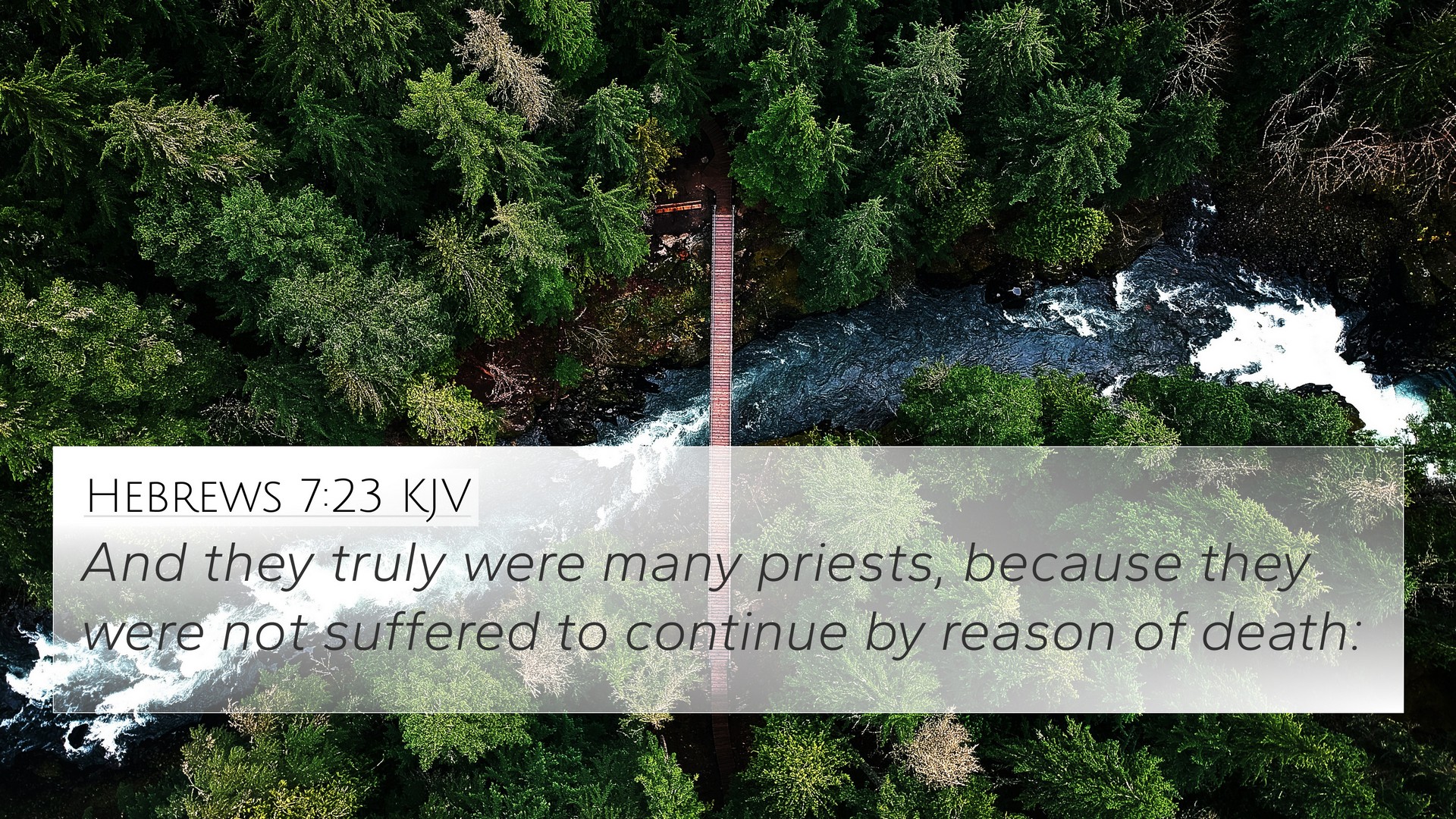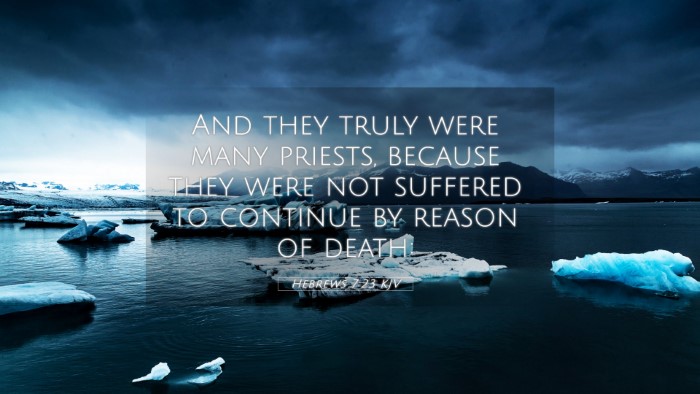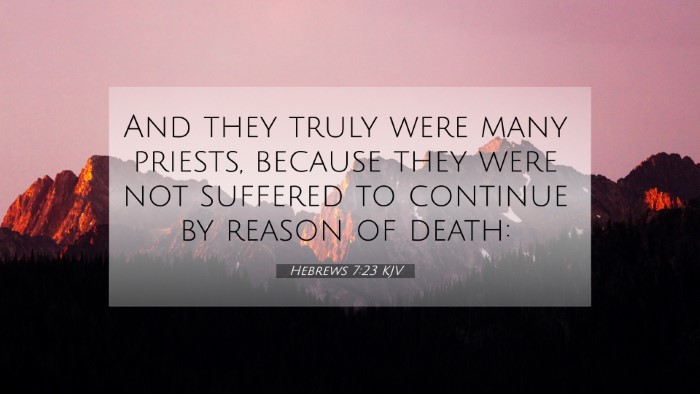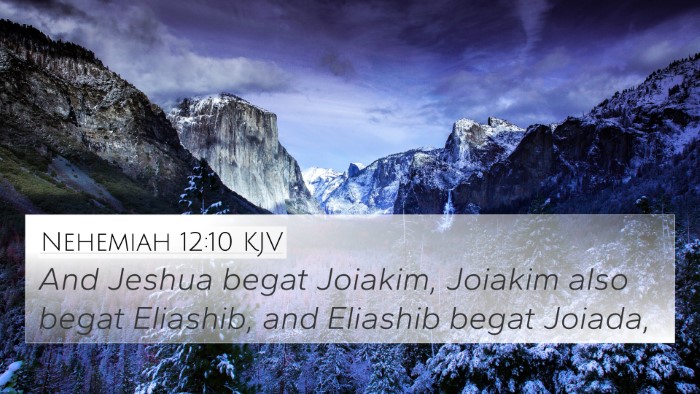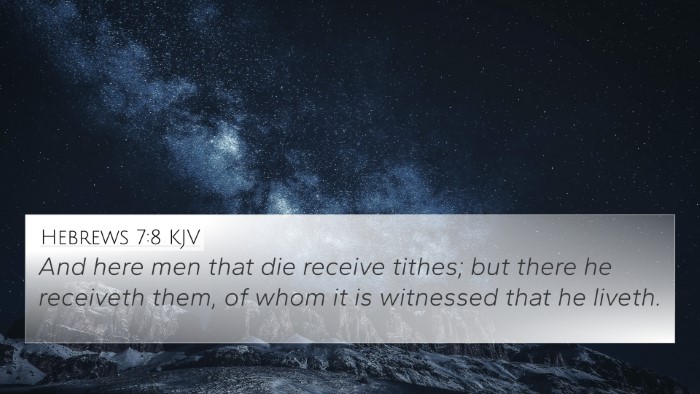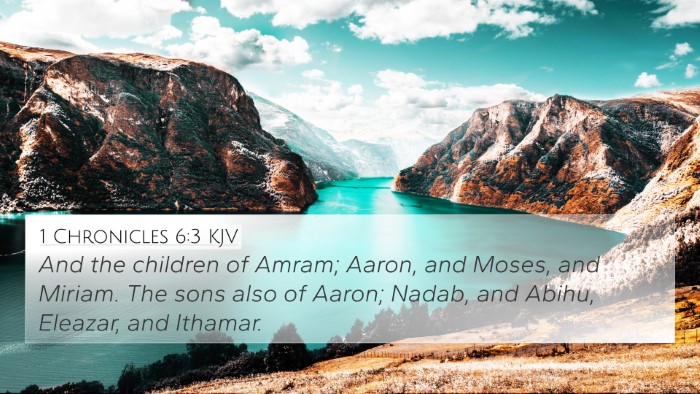Understanding Hebrews 7:23
Hebrews 7:23 states, "Now there have been many of those priests, since death prevented them from continuing in office." This verse highlights the temporary nature of the Levitical priesthood and introduces a contrast with the eternal priesthood of Christ.
Summary of Commentary Insights
Matthew Henry's Commentary: Henry emphasizes the significance of the priesthood established under the Law of Moses. He outlines that while there were many priests due to their mortality, the priesthood under Jesus Christ is unique and everlasting. Unlike the Levitical priests who could not serve eternally because they died, Christ's priesthood is permanent, giving believers a confident access to God.
Albert Barnes' Notes: Barnes contributes that the multitude of priests signifies the limitation of any earthly priest to mediate between God and man. When one priest died, another would take over, illustrating the flawed and insufficient nature of this priesthood. He explains that this serves to underscore the greater effectiveness of Christ's one sacrifice, and His eternal role as High Priest.
Adam Clarke's Commentary: Clarke highlights the need for a new kind of priest, one who does not perish and thus can intercede for humanity without end. He addresses the inadequacy of the Levitical system, noting that its transitory nature pointed to a better promise fulfilled in Jesus. Clarke's analysis invites readers to appreciate the eternal security believers have in their eternal High Priest.
Connections to Other Bible Verses
This verse has several important cross-references that enhance its understanding:
- Hebrews 5:6: "You are a priest forever in the order of Melchizedek." This verse speaks directly about Christ's eternal priesthood.
- Hebrews 7:1-3: Discusses Melchizedek as a type of Christ, affirming the significance of His eternal priesthood.
- Romans 8:34: "Who is he that condemns? Christ Jesus who died—more than that, who was raised to life—is at the right hand of God and is also interceding for us." It emphasizes Christ's ongoing intercession.
- 1 Peter 2:9: "But you are a chosen people, a royal priesthood, a holy nation..." This connects believers to the priesthood through Christ.
- John 14:6: "Jesus answered, 'I am the way and the truth and the life. No one comes to the Father except through me.'" This shows the exclusivity of access through Christ as High Priest.
- Hebrews 10:11-14: Highlights the finality of Christ’s sacrifice, stating that He has perfected forever those who are being sanctified.
- Hebrews 9:24: "For Christ did not enter a sanctuary made by human hands that was only a copy of the true one; he entered heaven itself." This emphasizes the heavenly reality of Christ's priesthood.
Thematic Analysis
The theme of priesthood and sacrifice runs deep in the Bible. Notably, the author of Hebrews systematically makes the case for the supremacy of Christ’s priesthood over the Levitical priesthood by showing its temporary nature and the limitations inherent in it.
Utilizing Bible cross-references enhances the study of these themes:
- The temporary vs. eternal nature of the priesthood.
- The completion of sacrifices in Christ.
- The connection between Old Testament types (like Melchizedek) and New Testament fulfillments.
Exploring Cross-References for Deeper Understanding
Understanding how to apply tools for Bible cross-referencing can significantly enhance your study. One can employ a Bible concordance to locate verses that resonate with the themes found in Hebrews 7:23. This practice can lead to profound insights as you discover:
- How to find cross-references in the Bible: Look up key terms such as "priest," "eternal," "sacrifice," and "intercession."
- Identifying connections between Old and New Testament: Note the shifts from the old covenant to the new in teachings about priesthood and sacrifice.
- Cross-referenced themes in the Bible: Study the concepts of mediation and intercession to connect with verses that address these themes.
Conclusion: The Eternal Priesthood of Christ
In conclusion, Hebrews 7:23 serves as a critical comparison point between the poor human mediation of the Levitical priests and the supreme, unending mediation of Christ. This understanding can deepen one’s faith and the ability to engage with the broader themes of scripture.
